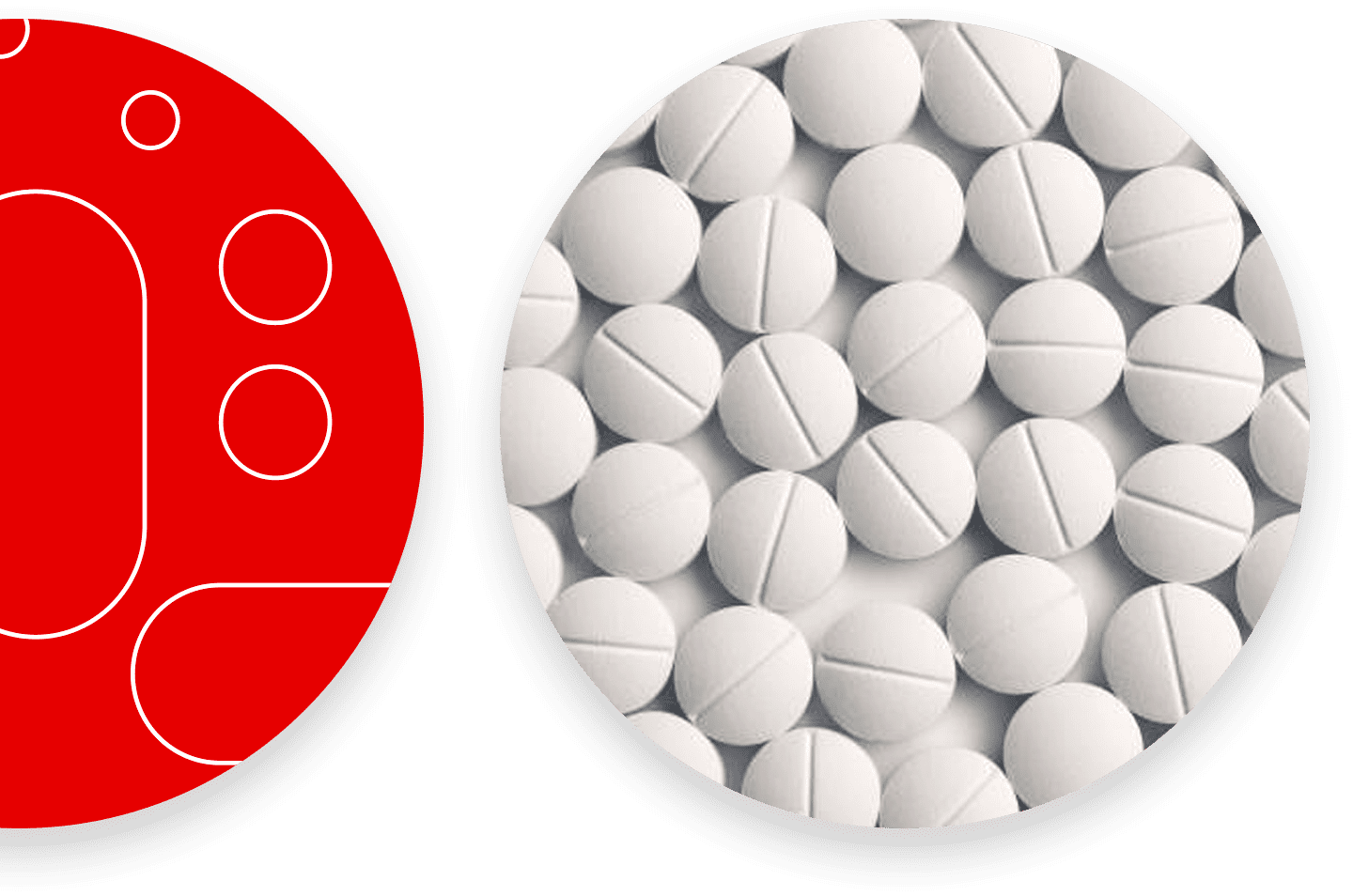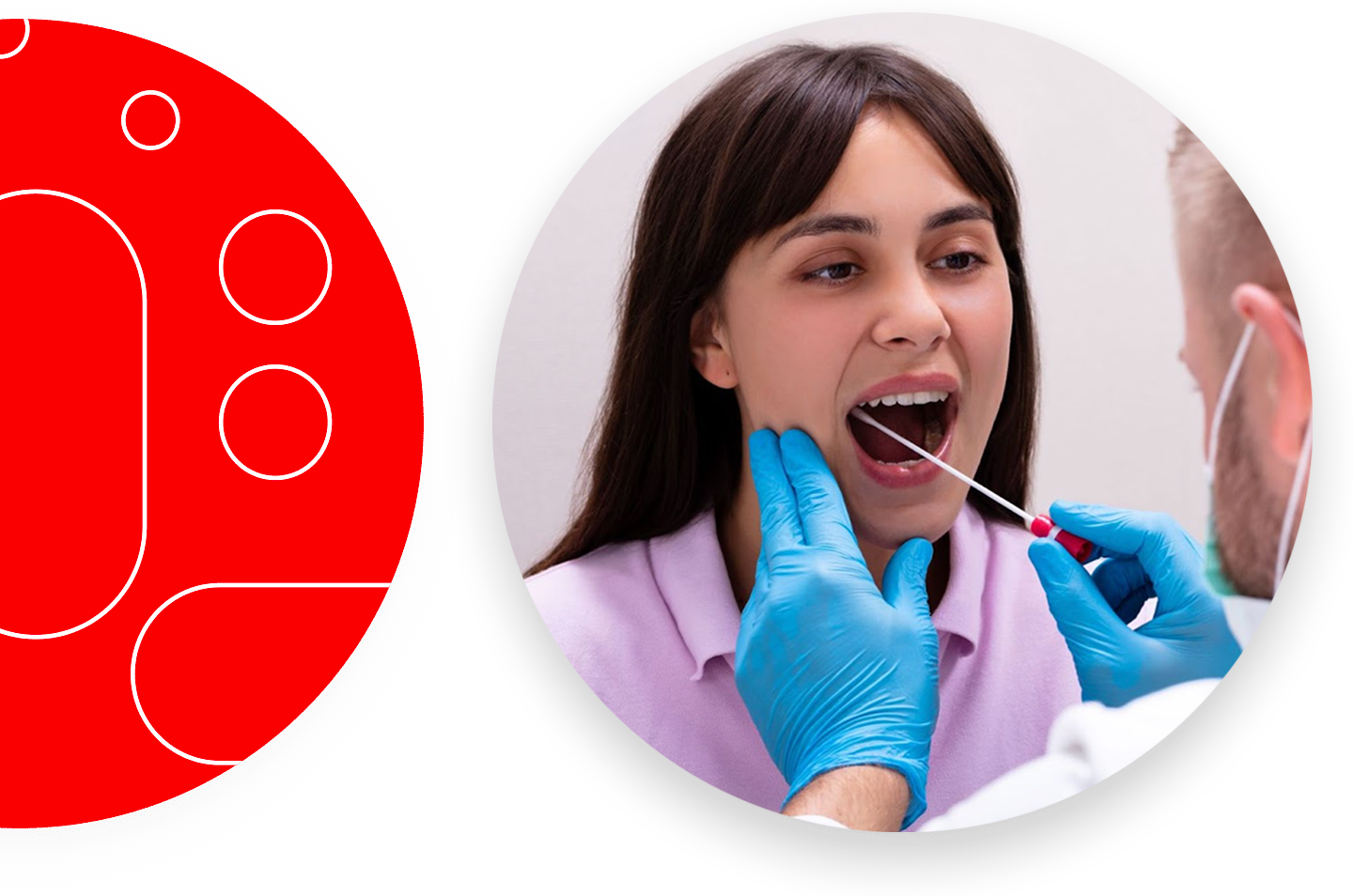What is genetic risk?
Our genes play a role in many aspects of our lives. Specific genetic variants may play a role in how likely it is for you to develop disease. Research has indicated that there may be genetic factors that contribute to a person’s risk for developing opioid use disorder (OUD). AvertD™ detects and identifies 15 genetic polymorphisms that may be associated with an elevated genetic risk for developing OUD. AvertD may be used as part of a complete clinical evaluation and risk assessment to identify patients who may be at elevated risk of developing OUD.
What is genetic risk?
Our genes play a role in many aspects of our lives. Specific genetic variants may play a role in how likely it is for you to develop disease. Research has indicated that there may be genetic factors that contribute to a person’s risk for developing opioid use disorder (OUD). AvertD™ detects and identifies 15 genetic polymorphisms that may be associated with an elevated genetic risk for developing OUD. AvertD may be used as part of a complete clinical evaluation and risk assessment to identify patients who may be at elevated risk of developing OUD.

What do I need to know about AvertD testing?
AvertD uses DNA collected by buccal swabs. Specimens should be collected by a qualified healthcare professional using the AvertD Buccal Sample Collection Kit after obtaining the patient’s consent for the test. The AvertD test report includes the score determined by the algorithm and the genetic risk for OUD as “Elevated Genetic Risk”, “Non-Elevated Genetic Risk”, or “N/A” when a score cannot be determined.
AvertD should only be ordered for use in individuals 18 years of age and older.
NOTE: Because genetics are only one factor in understanding the risk of developing OUD from using oral opioids, AvertD test results should be used in conjunction with a complete clinical evaluation and risk assessment of the patient to determine an appropriate pain management plan.
What does it mean if the specimen result indicates an “Elevated Genetic Risk” for OUD?
An “Elevated Genetic Risk” test result indicates that the patient’s genomic DNA has genetic polymorphisms that may be associated with an elevated genetic risk for developing OUD after taking oral opioids. Patients with Elevated Genetic Risk were shown to be 18 times more likely to develop OUD than patients with a Non-Elevated Genetic Risk1. Because genetic variations only account for a portion of a person’s risk of developing OUD, it is possible that an individual with an “Elevated Genetic Risk” result will not develop OUD or may already have OUD. For this reason, genetic results alone should not be used to assess an individual’s risk. Results of the test should not be used alone to make any decisions regarding treatment. Results may be used as part of a complete clinical evaluation and risk assessment to determine appropriate pain management strategies.
1 Donaldson K, Cardamone D, Genovese M, Garbely J, Demers L. Clinical Performance of a Gene-Based Machine Learning Classifier in Assessing Risk of Developing OUD in Subjects Taking Oral Opioids: A Prospective Observational Study. Ann Clin Lab Sci July-August 2021 vol. 51 no. 4 451-460
Risk were shown to be 18x more likely to develop OUD than patients
with a Non-Elevated Genetic Risk.

What does it mean if the specimen result indicates a “Non-Elevated Genetic Risk” for OUD?
A “Non-Elevated Genetic Risk” test result indicates that the patient’s genomic DNA has genetic polymorphisms that may not be associated with an elevated genetic risk for developing OUD after taking oral opioids. Because genetic variations only account for a portion of a person’s risk of developing OUD, it is possible that an individual with a “Non-Elevated Genetic Risk” result will develop OUD or may already have OUD. AvertD test results should not be used as the sole basis for treatment or patient management decisions, including prescribing oral opioids.

